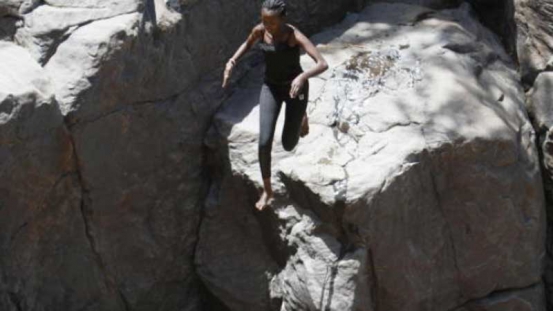×
The Standard e-Paper
Join Thousands Daily

Sandra Kipchumba stands on the edge of a rock in Cheploch gorge, Baringo County. A group of tourists are watching her from a distance, too scared to edge towards the slippery gorge, lest they fall in.
Beneath her is the deep Kerio River. She bites her lower lip, bends to look into the river, as if inspecting it.